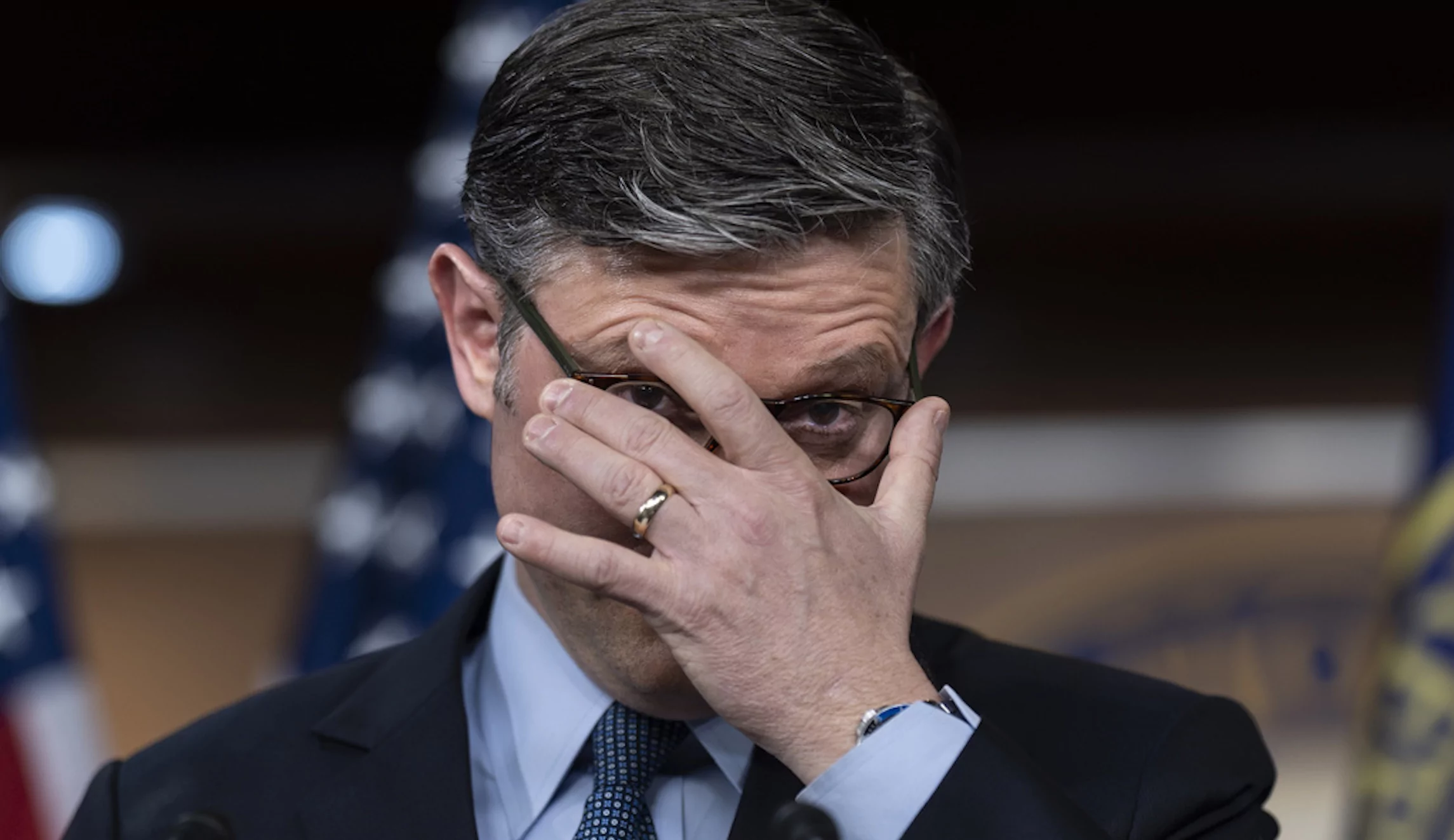

President-elect Donald Trump is forcing Mike Johnson (R-LA) into a speakership-defining moment on the debt limit, inserting a loyalty test into an already tenuous fight over government funding.
Trump expects Congress to raise, or eliminate, the federal debt ceiling before he assumes office on Jan. 20 and is demanding that Johnson start from scratch on a short-term spending deal to incorporate the hike.
CAPITOL’S NEW CROP: THE FRESH FACES OF THE HOUSE IN THE 119TH CONGRESS
“There won’t be anything approved unless the debt ceiling is done with,” Trump told ABC News on Thursday morning. “If we don’t get it, then we’re going to have a shutdown, but it’ll be a Biden shutdown.”
On Wednesday evening, Trump warned that any Republican who opposes a hike in the borrowing limit would be primaried.
Acquiescing to Trump’s demand would put Johnson in direct conflict with House conservatives, whose votes he needs to become speaker again in January. Most refuse to vote for any hike to the debt limit that does not include “structural reforms” to reduce spending.
At the same time, Trump was instrumental in quelling a House uprising in May, and his backing will be just as important to ease another revolt over Johnson’s leadership.
In repeated interviews, Trump signaled that his support for Johnson is conditional on his negotiations on the debt limit.
“If the speaker acts decisively, and tough, and gets rid of all of the traps being set by the Democrats, which will economically and, in other ways, destroy our country, he will easily remain speaker,” he told Fox News.
Trump said, “We’ll see,” in a separate interview when asked if Johnson still has his confidence.
The media blitz underscores how serious Trump is about throwing around his weight after his political comeback to the White House.
Johnson has been meeting with leaders of the various factions of his conference to explore their options on a government funding compromise, with an extension of the debt limit the reported subject of discussions.
The talks come hours after a bipartisan compromise fell apart in the face of opposition from Trump and X CEO Elon Musk.
But if Congress ignores Trump, judging the political calculus to be too complicated before a Friday deadline to fund the government, it will call into question his sway before he even enters office.
For Johnson, the risk is more existential politically. There is no guarantee that Trump’s endorsement will save him in January’s floor vote for speaker, and Johnson has only antagonized House conservatives with funding negotiations, releasing a bill on Wednesday that Republicans complained had too many Democratic add-ons.
Johnson was already going to have to rely on Democrats’ votes to fund the government, given their control of the Senate and White House. Adding the debt limit to the mix could make the vote total more lopsided, giving Republicans further ammunition to oppose his leadership bid next year.
“The problem is, any debt ceiling deal has to be obviously bipartisan,” said Sen. Kevin Cramer (R-ND), who served in the House until 2019.
“There are lots of Republicans who have never voted for one, and I’m pretty sure never will, and I’m not even sure Donald Trump could talk them into it,” Cramer added. “That means the price for it will be even greater. It’s not like it gets more conservative.”
Originally, the debt limit was set to be reached in January, with the Treasury Department expected to use “extraordinary measures” to stave off default into June.
Waiting until next year would have given Republicans more leverage since they will have unified control of Washington. But Trump is hesitant to navigate the fight so early in his presidency, viewing the debt ceiling as a political trip wire. Republicans will have a zero-seat majority to start the new Congress, making negotiations even more fraught.
Trump’s demand to eliminate it completely is unlikely to come to fruition, but Congress could agree to a one- or two-year extension that staves off a crisis for the time being.
Democrats like Sen. Elizabeth Warren (D-MA) are eager to incorporate a debt compromise into the spending bill. She had called for its elimination during the 2022 lame-duck session of Congress and on Thursday expressed support for Trump’s proposal.
But there is a reluctance within the broader Democratic caucus to relitigate a funding deal that had already been hammered out.
The original spending compromise, released on Wednesday, would have extended government funding until mid-March, with provisions on disaster relief and farm assistance among the provisions tacked on.
“We need to pass this bill, and we can get to that later,” Rep. Marcy Kaptur (D-OH), a member of the House Appropriations Committee, said of the debt limit. “I think some of the people around the president-elect need to understand the legislative process and not stall it.”
Johnson has been meeting with Vice President-elect J.D. Vance and James Braid, the incoming legislative director for Trump, to discuss what a spending deal might look like.
House leadership is suggesting a vote could come later on Thursday, but first, the legislation would need buy-in from Democratic leadership. On Thursday, Minority Leader Hakeem Jeffries (D-NY) told reporters that talk of a debt limit hike was “premature.”
Already, conservatives are signaling their opposition to any hike in the debt limit that is not accompanied by deficit cuts.
“I think if we’re going to do debt ceiling increases, we ought to have structural changes to start dealing with these issues,” said Sen. Rick Scott (R-FL), who works closely with House conservatives.
CLICK HERE TO READ MORE FROM THE WASHINGTON EXAMINER
In 2023, the House Freedom Caucus forced the House to pass a debt limit bill with almost $5 trillion in spending cuts as an opening offer in negotiations with the White House. But ex-Speaker Kevin McCarthy adopted a far narrower compromise with President Joe Biden, an action that contributed to his ouster four months later.
Democrats will again oppose large concessions to Johnson’s right flank in pursuit of a deal on the debt limit.




